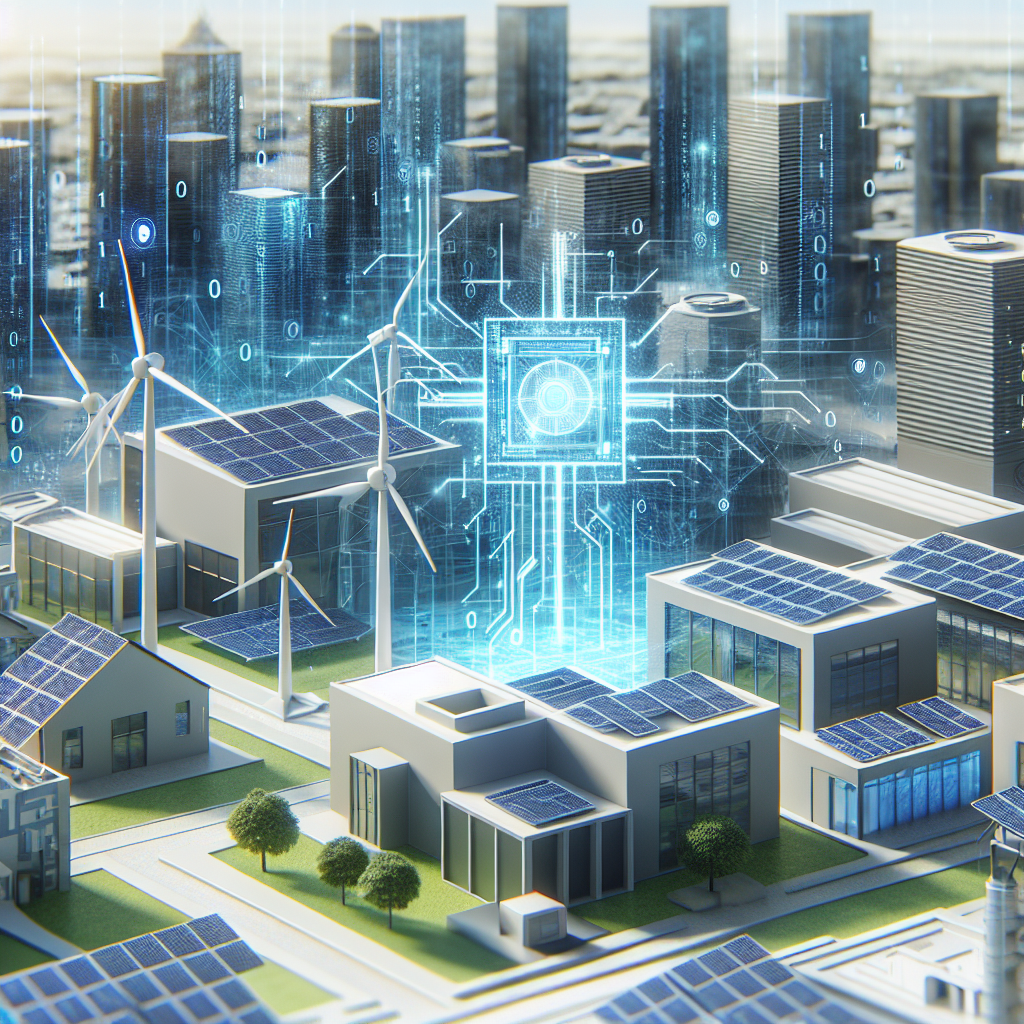In recent years, artificial intelligence (AI) has been increasingly utilized in the energy sector to improve efficiency and reduce costs. One particular area where AI has shown significant impact is in buildings, where it can optimize energy consumption and incorporate renewable energy sources. This article will explore the ways in which AI is revolutionizing energy efficiency in buildings with renewables, as well as address some common questions about this emerging technology.
AI in Buildings: A Game-Changer for Energy Efficiency
Buildings account for a significant portion of global energy consumption, making them a prime target for energy efficiency improvements. AI has the potential to transform the way buildings are managed and operated, leading to reduced energy consumption, lower costs, and a smaller environmental footprint.
One of the key ways in which AI is being used in buildings is through the optimization of energy systems. By analyzing data from sensors, meters, and other sources, AI algorithms can identify patterns and trends in energy consumption, allowing for more accurate predictions and better decision-making. This enables building managers to adjust heating, cooling, lighting, and other systems in real-time to minimize energy waste and maximize efficiency.
AI can also be used to optimize the integration of renewable energy sources, such as solar panels and wind turbines, into building systems. By forecasting energy production and consumption patterns, AI algorithms can determine the most efficient way to use renewable energy, store excess energy, and reduce reliance on the grid. This not only reduces energy costs but also helps to lower carbon emissions and promote sustainability.
Furthermore, AI can enable predictive maintenance in buildings, allowing for early detection of equipment failures and malfunctions. By analyzing data from sensors and equipment, AI algorithms can identify potential issues before they occur, preventing costly downtime and optimizing the performance of building systems.
Overall, the integration of AI in buildings has the potential to revolutionize energy efficiency and sustainability, making buildings smarter, more efficient, and more environmentally friendly.
Common FAQs About AI in Buildings with Renewables
As AI technology continues to evolve, there are some common questions and concerns that arise regarding its implementation in buildings with renewables. Here are some frequently asked questions about the impact of AI on energy efficiency in buildings:
1. How does AI optimize energy consumption in buildings?
AI optimizes energy consumption in buildings by analyzing data from sensors, meters, and other sources to identify patterns and trends in energy usage. This data is then used to make real-time adjustments to heating, cooling, lighting, and other systems to minimize energy waste and maximize efficiency.
2. Can AI help buildings integrate renewable energy sources?
Yes, AI can help buildings integrate renewable energy sources by forecasting energy production and consumption patterns to determine the most efficient way to use renewable energy, store excess energy, and reduce reliance on the grid.
3. How does AI enable predictive maintenance in buildings?
AI enables predictive maintenance in buildings by analyzing data from sensors and equipment to identify potential equipment failures and malfunctions before they occur. This allows for early detection of issues, preventing costly downtime and optimizing the performance of building systems.
4. What are the benefits of using AI in buildings with renewables?
The benefits of using AI in buildings with renewables include reduced energy consumption, lower costs, decreased reliance on the grid, lower carbon emissions, and improved sustainability. AI can also optimize building operations, improve comfort and productivity for occupants, and increase the value of the property.
5. Are there any challenges to implementing AI in buildings with renewables?
Some challenges to implementing AI in buildings with renewables include the initial cost of technology, data privacy and security concerns, and the need for specialized expertise to manage and operate AI systems. However, as AI technology continues to advance, these challenges are becoming more manageable.
In conclusion, the impact of AI on energy efficiency in buildings with renewables is significant and promising. By optimizing energy consumption, integrating renewable energy sources, enabling predictive maintenance, and improving building operations, AI has the potential to revolutionize the way buildings are managed and operated. As AI technology continues to evolve, it is important for building owners, managers, and stakeholders to stay informed and embrace the opportunities that AI offers for a more sustainable and efficient built environment.

